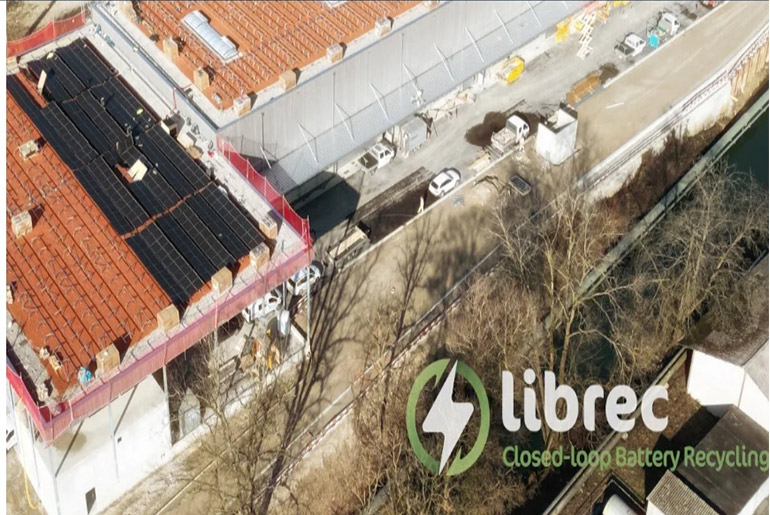Librec has officially opened its first industrial electric vehicle (EV) battery recycling plant in Biberist, located in the Swiss canton of Solothurn. The facility, built on the site of a former paper factory, includes a new hall and is designed to recycle up to 12,000 tons of EV batteries annually.
Originally announced last summer, the plant is now operational and boasts an impressive recovery rate of over 97%—a benchmark yet to be achieved elsewhere in the industry. It handles both end-of-life vehicle batteries and production rejects.
Once operating at full capacity, the plant will run three shifts. Incoming batteries are fully discharged using integrated technology, with the extracted energy powering around one-third of the plant’s operations. The remaining energy demand is met through rooftop solar installations.
Librec plans to recycle batteries from all major manufacturers. After discharging, the batteries are dismantled, shredded, and dried to produce “black mass”—a powder rich in valuable materials like lithium, cobalt, nickel, copper, and aluminium. These critical raw materials can be reintroduced into the battery manufacturing process.
Until now, most black mass from Europe has been processed in China and Southeast Asia due to a lack of local facilities. Librec’s entry helps fill this gap, enabling circular use of critical materials within Europe.
Jodok Reinhardt, Managing Director of Librec, stated, “We are receiving excellent feedback on our black mass and believe we currently produce the best in Europe in terms of quality, cost, and sustainability.”
While Librec is initially focusing on Swiss operations, international expansion is on the horizon. “We plan to consolidate in Biberist first and then explore international partnerships and projects,” said Jürg Steiger, Chairman of the Board.
The Biberist site is also home to Libattion, which recently launched an EV battery upcycling facility, marking the area as a growing hub for sustainable battery solutions.



